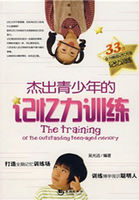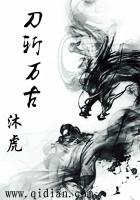Such serious contradictions and incongruities lead us forcibly to the conclusion that we have a state of transition before us, an institution that is in some degree distorted and warped from its original shape. In this respect the manorial element comes strongly to the fore. The rough scale of holdings would be grossly against justice for purely communal purposes, but it is not only the occupation of land, but also the incidence of services that is regulated by it. People would not so much complain of holding five acres instead of thirty, if they had to work and to pay six times less in the first case. Again, a division of tenements fixed once and for all in spite of changes in the numbers and wants of the population, looks anything but convenient. At the same time the fixed scheme of the division offers a ready basis for computing rents and assessing labour services. And for the sake of the lord it was advisable to preserve outward unity even when the system was actually breaking up: for dealings with the manorial administration virgates remained undivided, even when they were no longer occupied as integral units.
Although the holdings are undoubtedly made subservient to the wants of the manor, it would be going a great deal too far to suppose that they were formed with the primary object of meeting those wants. If we look closer into the structure we find that it is based on the relation between the plough-team and the arable, a relation which is more or less constant and explains the gradations and the mode of apportionment. The division of the land is no indefinite or capricious one, because the land has to be used in certain quantities, and smaller quantities or fractions would disarrange the natural connexion between the soil and the forces that make it productive. The society of those days appears as an agricultural mass consisting not of individual persons or natural families, but of groups possessed of the implements for tilling the land. Its unit of reckoning is not the man, but the plough-beast. As the model plough-team happens to be a very large one, the large unit of the hide is adopted. Lesser quantities may be formed also, but still they correspond to aliquot parts of the full team of eight oxen. Thus the possible gradations are not so many or so gentle as in our own time, but are in the main the half plough-land, the virgate, and the oxgang. What else there is can be only regarded as subsidiary to the main arrangement: the cotters and crofters are not tenants in the fields, but gardeners, labourers, craftsmen, herdsmen, and the like. If the country had not been mainly cultivated as ploughland, but had borne vines or olives or crops that required no cumbersome implements, but intense and individualistic labour, one may readily believe that the holdings would have been more compact, and also more irregular.
The principles of coaration give an insight into the nature of these English village communities. They did not aim at absolute equality; they subordinated the personal element to the agricultural one, if we may use that expression. Not so much an apportionment of individual claims was effected as an apportionment of the land to the forces at work upon it. This observation helps us to get rid of the anomalies with which we started: the holding was united because an ox could not be divided; the plots might be smaller or larger, but everywhere they were connected with a scheme of which the plough-team was the unit. An increasing population had to take care of itself, and to try to fit itself into the existing divisions by family arrangements, marriage, adoption, reclaiming of new land, employment for hire, by-professions, and emigration. The manorial factor comes in to make everYthing artificially regular and rigid.
If we examine the open-field system and its relation to the holdings of individual peasants, we see, as it were, the framework of a peasant community that has swerved from the path of its original development. The gathering of scattered and intermixed strips into holdings points to practices of division or allotment: these practices are the very essence of the whole, and they alone can explain the glaring inconveniencies of scattered ownership coupled with artificial concentration. But redivision of the arable is not seen in the documents of our period. There is no shifting of strips, no changes in the quantities allotted to each family. Everything goes by heredity and settled rules of family property, as if the husbandry was not arranged for communal ownership and re-allotment. I should like to compare the whole to the icebound surface of a northern sea:
it is not smooth, although hard and immoveable, and the hills and hollows of the uneven plain remind one of the billows that rolled when it was yet unfrozen.
The treatment of the arable gives the clue to all other sides of the subject. The rights of common usage of meadow and pasture carry us back to practices which must have been originally applied to arable also. When one reads of a meadow being cut up into strips and partitioned for a year among the members of the community by regular rotation or by lot, one does not see why only the grass land should be thus treated while there is no reallotment of the arable plots. As for the waste, it does not even admit of set boundaries, and the only possible means of apportioning its use is to prescribe what and how many heads of cattle each holding may send out upon it. The close affinity between the different parts of the village soil is especially illustrated by the fact, that the open-field arable is treated as common through the greater part of the year. Such facts are more than survivals, more than stray relics of a bygone time. The communal element of English mediaeval husbandry becomes conspicuous in the individualistic elements that grow out of it.















